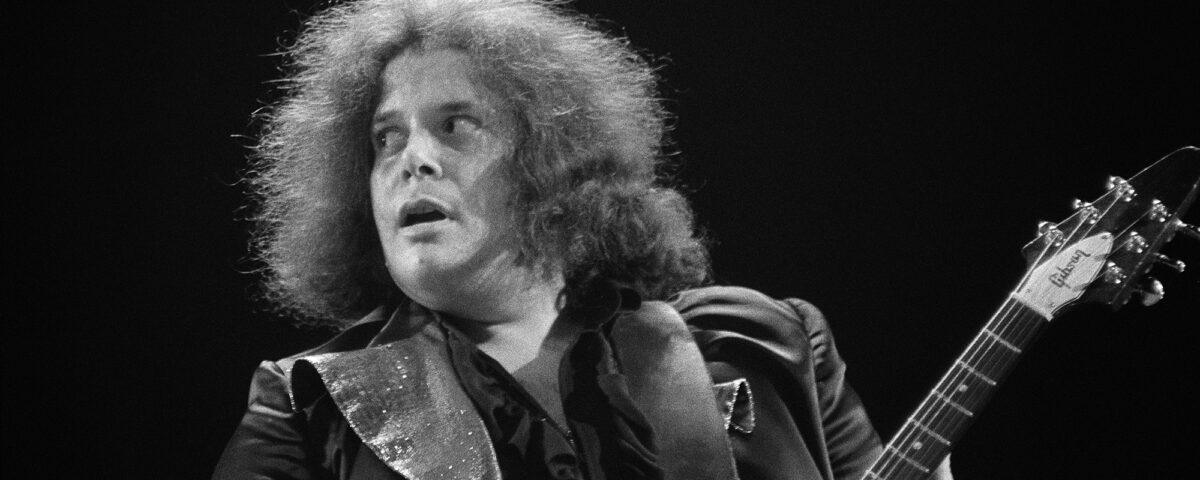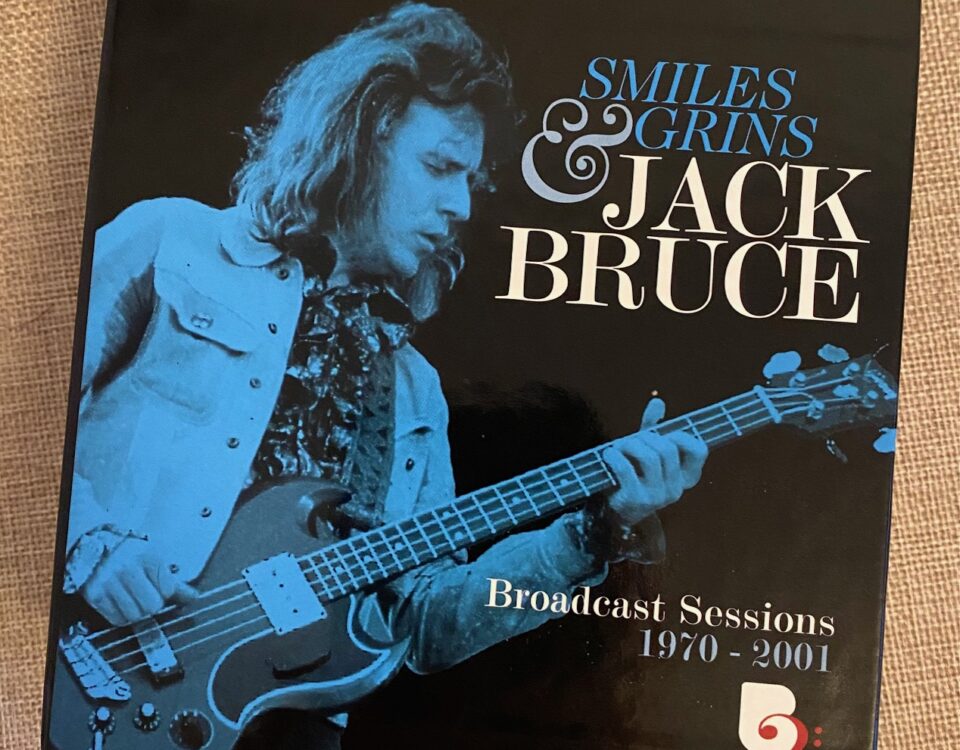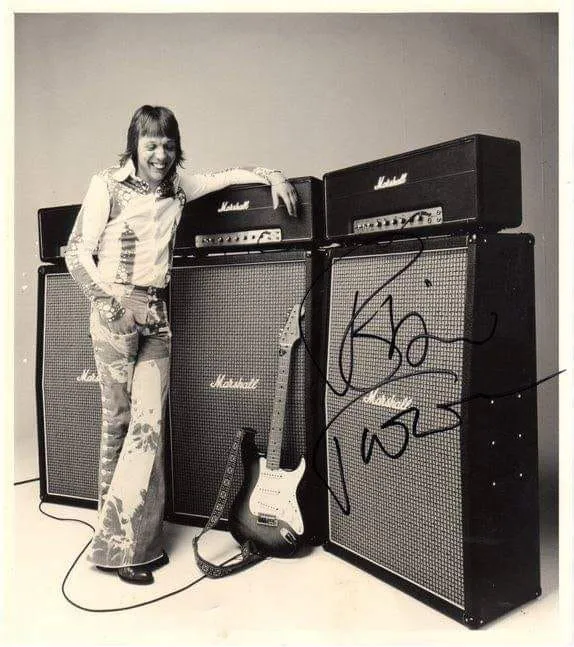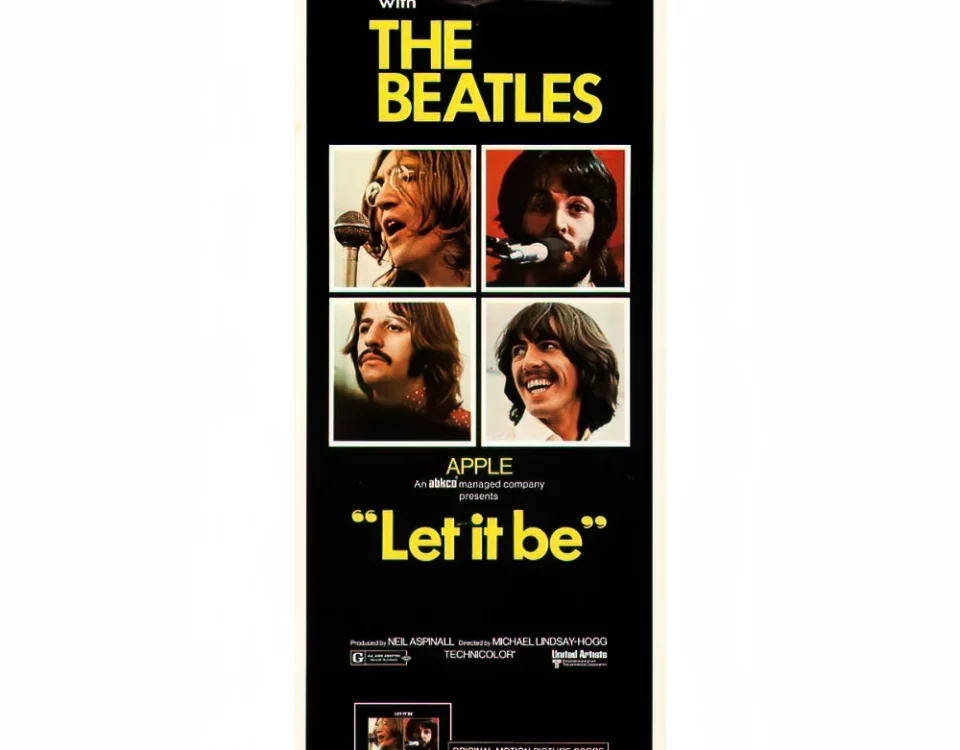Meeting a Mountain Man…
The creation of blog entries here at Modern Listener Publishing proceeds at a comfortably glacial pace – so the appearance of two entries in two days is positively unprecedented. But if ever there has been an unavoidable call to the computer keyboard, it is yesterday’s news of the passing of the great Leslie West.
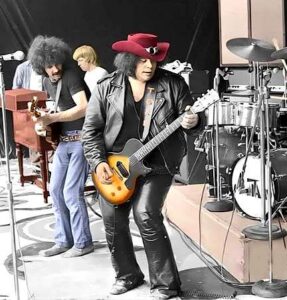
Leslie West with his no-frills Les Paul Jr. early in Mountain’s career, no doubt his Sunn amplification set on “stun.”
I could easily write thousands of words about Leslie’s work with the fundamental and heavy band Mountain, or the ill-fated supergroup that followed comprised of Mountain drummer Corky Laing, Cream bassist Jack Bruce, and West, or even West’s solo work and exploits in the years that followed. I could write about how Leslie learned the value of musically exploring relative major chords in minor progressions from the late producer and Mountain bassist Felix Pappalardi. How West came to choose the humblest of guitars – the single-pickup Gibson Les Paul Junior – as his weapon of choice. How the shipment of the wrong kind of amplification from Sunn Musical Equipment Company became the sound of Mountain. How The Who’s Peter Townshend became so enamored with the music of Mountain that he brought Leslie into the studio to play lead guitar on early sessions for one of rock’s greatest albums, Who’s Next. How Mountain at their very peak would unfold lengthy improvisations that were both refined and raw – the former element coming from Pappalardi, the later spilling over from West.
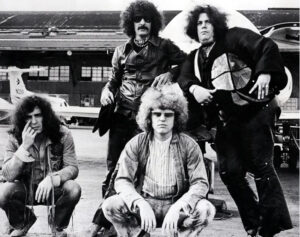
Mountain depicted in a print included in the packaging of their second LP Nantucket Sleighride, the band seen indulging in the ultimate rock star luxury of the 1970s, the private Lear jet. Left to right: drummer Corky Laing, bassist/vocalist Felix Pappalardi, keyboardist Steve Knight, guitarist/vocalist Leslie West.
But the best thing you could do to understand Leslie West’s significance is to just listen. One of my favorite commercially released pieces is a long exploration the band undertook at the Fillmore East on June 27, 1971, one that took up the second side of the band’s Flowers of Evil album. It begins with West solo before the group launches into a rollicking cover of “Roll Over Beethoven” leading to the real fireworks that begin just after the 8:50 mark: a cascading expedition through Mountain’s “Dreams of Milk and Honey” and “Swan Theme.” You can taste it here in this official post by Sony Music, but you really should get your own, and let it flow loud and proud:
https://www.youtube.com/watch?v=wQBQFX7rAF8
The first time I met Leslie West was not long after that concert was recorded. It was at a Mountain show in Lewisburg PA at Bucknell University. I was involved with the event, so I had an all-access pass and a ready-to-go, fully rehearsed speech to let Leslie know how much I loved his band and what they meant to me. Immediately after soundcheck I saw my chance. I walked up to West and launched into my complementary litany. For his part, West kind of tolerated it, though he spent most of the brief moments looking anywhere else in the backstage area rather than at me. Picking up on a break in my presentation, Leslie suddenly spoke: “Yeh, thanks a lot, kid…” And the mountain of a man took that opportunity to quickly amble away.
It could fall under the category of that old warning: never meet your heroes. But that was just Leslie – gruff, inelegant, and just a touch unpolished. After all, West’s pre-Mountain band had been called The Vagrants, a name as scruffy as their guitarist was musically before coming under the influence of Pappalardi.
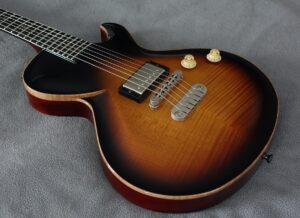
One of the 100 limited-production Dean Leslie West Signature models, each beautiful instrument played and signed by Leslie himself. The volume knobs? Yep, they go to “11.”
Many years after the heights of Mountain, Dean Guitars decided to commemorate and honor Leslie West with a signature guitar, one that would have both a standard production run and a limited run of 100 exclusive instruments signed by West. Oddly, the design was just about the polar opposite of the rough-hewn man who inspired the guitar: flowing graceful lines, subtle artistic touches.
Several years after those guitars were released, I was fortunate to obtain one of the beautiful signed models. Funny thing: every time I play it, in the back of my mind I faintly hear, “Yeh, thanks a lot, kid…” Yeh, thanks a lot, Leslie. Rest in peace from all those years on the road.

